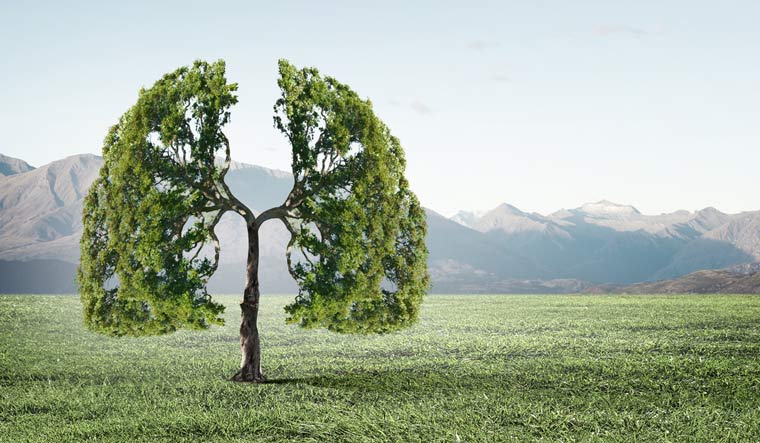Nature is sending us a message with the coronavirus pandemic and the ongoing climate crisis, UN’s environment programme chief, told Guardian.
In an 'exclusive' interview with the newspaper on Wednesday, Inger Andersen warned that our erosion of wild spaces has far-reaching consequences and we need to take care of our planet to save ourselves from these consequences.“ Our continued erosion of wild spaces has brought us uncomfortably close to animals and plants that harbour diseases that can jump to humans,” the Danish environmentalist said.
“We are intimately interconnected with nature, whether we like it or not. If we don’t take care of nature, we can’t take care of ourselves. And as we hurtle towards a population of 10 billion people on this planet, we need to go into this future armed with nature as our strongest ally,” Andersen, executive director of the UN Environment Programme told Guardian.
Andersen, executive director of the UN Environment Programme, said our natural systems face too many pressure now. “There are too many pressures at the same time on our natural systems and something has to give,” she said.
Also Read
- Official! Bald eagle is national bird of United States, Joe Biden's big Christmas eve announcement!
- Saffola and Parachute oil maker Marico announces plans to bring emissions to net zero across India units by 2030
- Crazy! Tulare Lake, purposely killed by humans, reborn after 130 years to destroy 94,000 acres of property; the California 'ghost lake' story
“Our continued erosion of wild spaces has brought us uncomfortably close to animals and plants that harbour diseases that can jump to humans," Andersen said.
Pointing out that 75 per cent of all emerging infectious diseases come from wildlife, she said, “Never before have so many opportunities existed for pathogens to pass from wild and domestic animals to people.” .
She advised that the immediate priority should be to protect people from the coronavirus and prevent its spread. “But our long-term response must tackle habitat and biodiversity loss,” she said.
Mentioning about the recent environmental damages such as the Australian bushfires, climate changes like the rising heat and the locust invasion, she said, “At the end of the day, [with] all of these events, nature is sending us a message,” she said in the interview to the newspaper.


